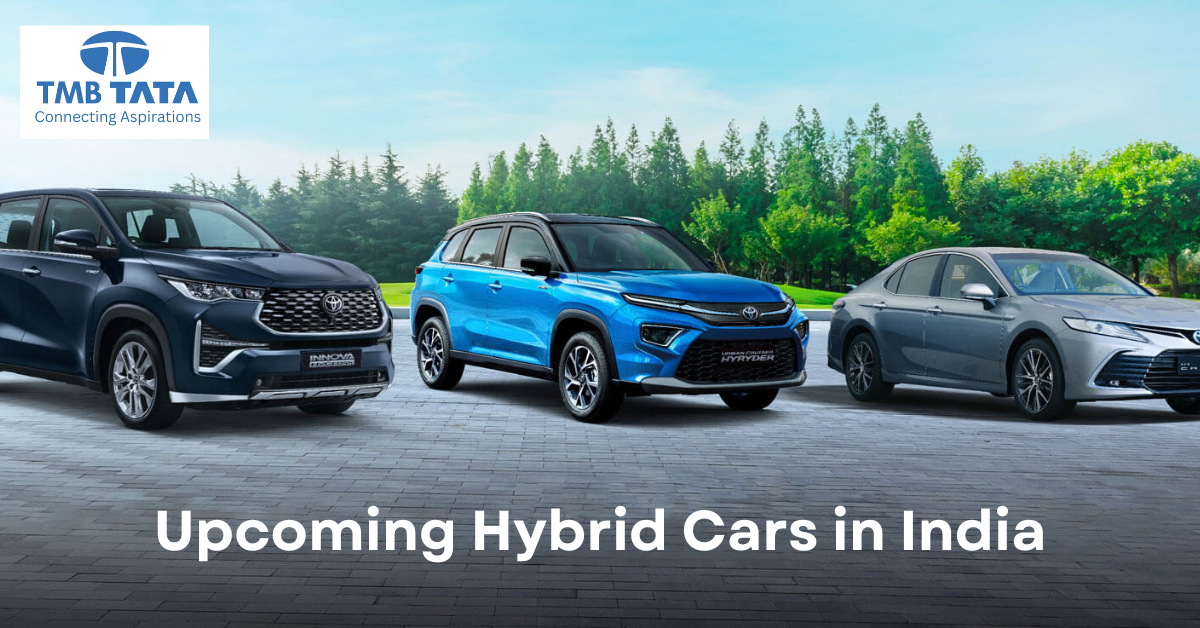
The Indian automotive landscape is undergoing a green revolution. Hybrid cars, with their blend of electric and gasoline power, are emerging as the perfect solution for those seeking eco-friendly yet powerful vehicles. In this guide, we explore the upcoming hybrid cars in India for 2024, their benefits, top models, and what to expect from this evolving market.
In an era where sustainability is more than just a buzzword, hybrid cars offer a practical middle ground between traditional fuel vehicles and fully electric ones. With fuel prices soaring and climate change becoming a pressing issue, Indian consumers are turning to hybrid cars for their superior fuel efficiency and reduced emissions.
Key Benefits of Hybrid Cars:
As the demand for hybrid vehicles grows, several top manufacturers are set to launch their latest models in India. Here are some of the most anticipated hybrid cars for 2024:
Toyota Innova Hycross
Price: ?25.97 Lakh
Highlights: This premium MPV is not just about space and comfort but also boasts advanced hybrid technology. It promises excellent fuel efficiency, making it ideal for families and long-distance travel.
Customer Reviews: Early reviews praise the Innova Hycross for its smooth performance and luxurious interiors, though the higher price point might deter some buyers.
Toyota Camry Hybrid
Price: ?46.17 Lakh
Highlights: A pioneer in the luxury hybrid sedan segment, the Camry Hybrid offers a refined driving experience with impressive fuel efficiency and advanced safety features.
Hybrid System: It features Toyota's proven hybrid technology, ensuring smooth acceleration and reduced fuel consumption.
Maruti Suzuki Grand Vitara
Price: ?10.76 Lakh
Highlights: This hybrid SUV stands out for its affordability, making hybrid technology accessible to a broader audience in India. With Maruti Suzuki's trusted brand name, it’s expected to be a popular choice among budget-conscious buyers.
One of the biggest challenges in the hybrid market is the high cost of production, particularly the expensive battery technology. This makes it difficult for manufacturers to offer a fully hybrid car under ?10 lakh. However, the Maruti Suzuki Grand Vitara is a step in the right direction, offering a hybrid option just above this price point.
While Tata Motors currently focuses on electric vehicles (EVs), they haven't ruled out the possibility of hybrid models. As battery technology improves and production costs decrease, we might see a wider range of affordable hybrid cars in India.
Hybrid cars represent the future of sustainable driving in India. With options like the Toyota Innova Hycross, Camry Hybrid, and Maruti Suzuki Grand Vitara, there’s a hybrid for every budget and need. As more models hit the market, hybrid cars will become an increasingly common sight on Indian roads, paving the way for a cleaner, greener future.
Stay tuned as the hybrid car market in India evolves, bringing new innovations and opportunities for eco-conscious drivers. By choosing a hybrid, you’re not just investing in a car—you’re investing in the planet.
A hybrid car combines a gasoline engine with an electric motor. The electric motor assists the gasoline engine during acceleration, reducing fuel consumption and emissions. Some hybrids also feature regenerative braking, which captures energy normally lost during braking and stores it in the battery for later use.
Hybrid cars may have slightly higher maintenance costs due to their complex systems, including the battery and electric motor. However, these costs are often offset by savings in fuel consumption and government incentives, making them cost-effective in the long run.
The Indian government offers several incentives for purchasing hybrid cars, including lower GST rates, subsidies, and road tax exemptions. These incentives are part of the government's efforts to promote eco-friendly transportation and reduce carbon emissions.
Hybrid cars are significantly more fuel-efficient than traditional petrol or diesel vehicles. They can achieve up to 30-50% better fuel economy, depending on driving conditions and the specific model. This translates to lower fuel costs and reduced environmental impact.
